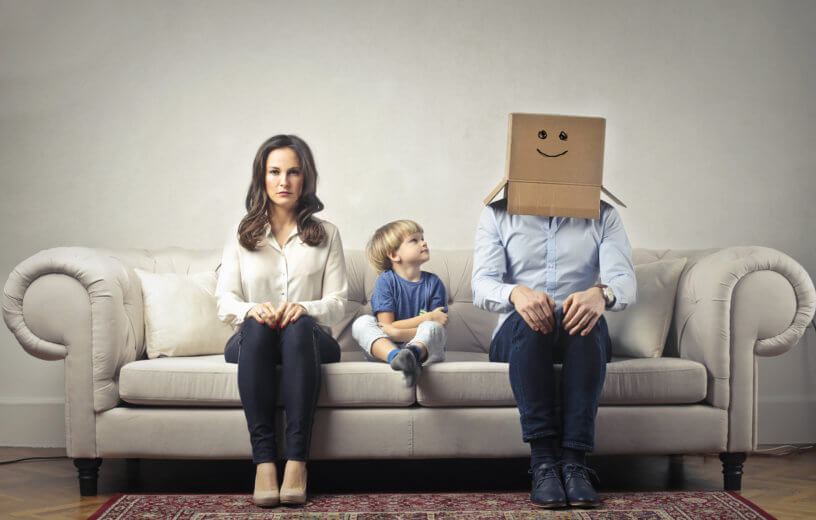ANN ARBOR, Mich. — As families prepare to celebrate dads for all that they do, one gift no father wants to get is a heaping helping of shame. Tales of “mommy-shaming” have cropped up from time to time in the media in recent years, but according to a recent national poll, about half of all fathers say they too have been struck with slings and arrows for all manners of parenting missteps — from overdoing the discipline, to abandoning the diet, to playing too rough.
The nationally-representative poll of 713 fathers of children ages 13 and under found that nearly half of fathers receive the criticism in a positive light and make some adjustments, but others have an opposite reaction, according to the C.S. Mott Children’s Hospital National Poll on Children’s Health at the University of Michigan.
Criticism makes more than a quarter of dads feel less confident in their parenting skills and one in five feels like stepping back from the parenting role. For many fathers (43 percent), the criticism seems unfair.
“Fathers who are loving and engaged can have a positive impact on their children’s development and well-being,” says poll co-director Sarah Clark, an associate research scientist with the universty, in a statement. “While some fathers say criticism prompts them to seek more information about good parenting practices, too much disparagement may cause dads to feel demoralized about their parental role. Family members — especially the other parent–should be willing to acknowledge that different parenting styles are not necessarily incorrect or harmful.”
The number one area of complaint tends to focus on styles of discipline. About two-thirds of dads reported having been criticized for how they handle transgressions. Clark says disagreements between parents about guidelines and the results of misbehavior in children is quite common. But it is very important for parents to seek common ground in this arena.
“Addressing a child’s misbehavior is one of the greatest challenges of parenting, and parents aren’t always on the same page when it comes to expectations and consequences,” Clark says. “Inconsistency between parents in responding to a child’s behavior can send mixed messages to the child, and result in conflict and criticism between parents.”
The second category of daddy-shaming falls under gastronomy, with two in five fathers being criticized for their diet and nutrition choices for the kids.
Meanwhile, almost a third of dads polled say they’ve been judged for not giving their children enough attention and about a third of dads got in trouble when they did — for playing too rough.
Other areas of daddy-shaming are related to sleep, appearance and safety.
And who does the most daddy-shaming? Family members hurl the most criticism, but 44 percent of the time it’s mom who is dishing it out. Grandparents are next in line (24 percent), followed by friends (9 percent).
“In some instances, this may be a reflection of historical gender roles, where mothers are viewed as more natural caregivers, and fathers as having limited parenting capabilities that need supervision or correction,” Clark says. “When this occurs, minor differences in parenting style can cause conflict over the ‘best’ way to parent.”
Clark points out that “Cultural norms, family dynamics and prior experience with his own father can also shape a dad’s parenting style and influence the expectations of others.”
This factors into rough-housing or ignoring the kids. Dads might get more physical in their play with the children, but moms and other adults might feel like the father is not aware of the potential for injury.
While nine in 10 fathers polled believed that most dads are doing a good job at parenting, some have felt the sting of being left out of communication with teachers and medical professionals. Almost a quarter of fathers felt blocked from communication about their kid’s activities.
“Some fathers say they feel that professionals who interact with their child are dismissive of their parental role,” Clark says. “Even subtle forms of disparagement can undercut fathers’ confidence or send the message that they are less important to their child’s well-being. Professionals who work with children should avoid negative assumptions about fathers’ level of involvement or interest in parenting.”
Bottom line, it’s about helping dads feel like they are part of the solution, not the problem. Both professionals and family members should avoid making dads feel like sideline players in their children’s lives.
“Family members should also be mindful of comments or critiques that may make dads feel like they don’t know how to parent the ‘right’ way,'” concludes Clark.
So take the day off, Daddy-Shamers. As Wade Boggs said, “Anyone can be a father, but it takes someone special to be a dad.” Here’s to all the dads out there.
